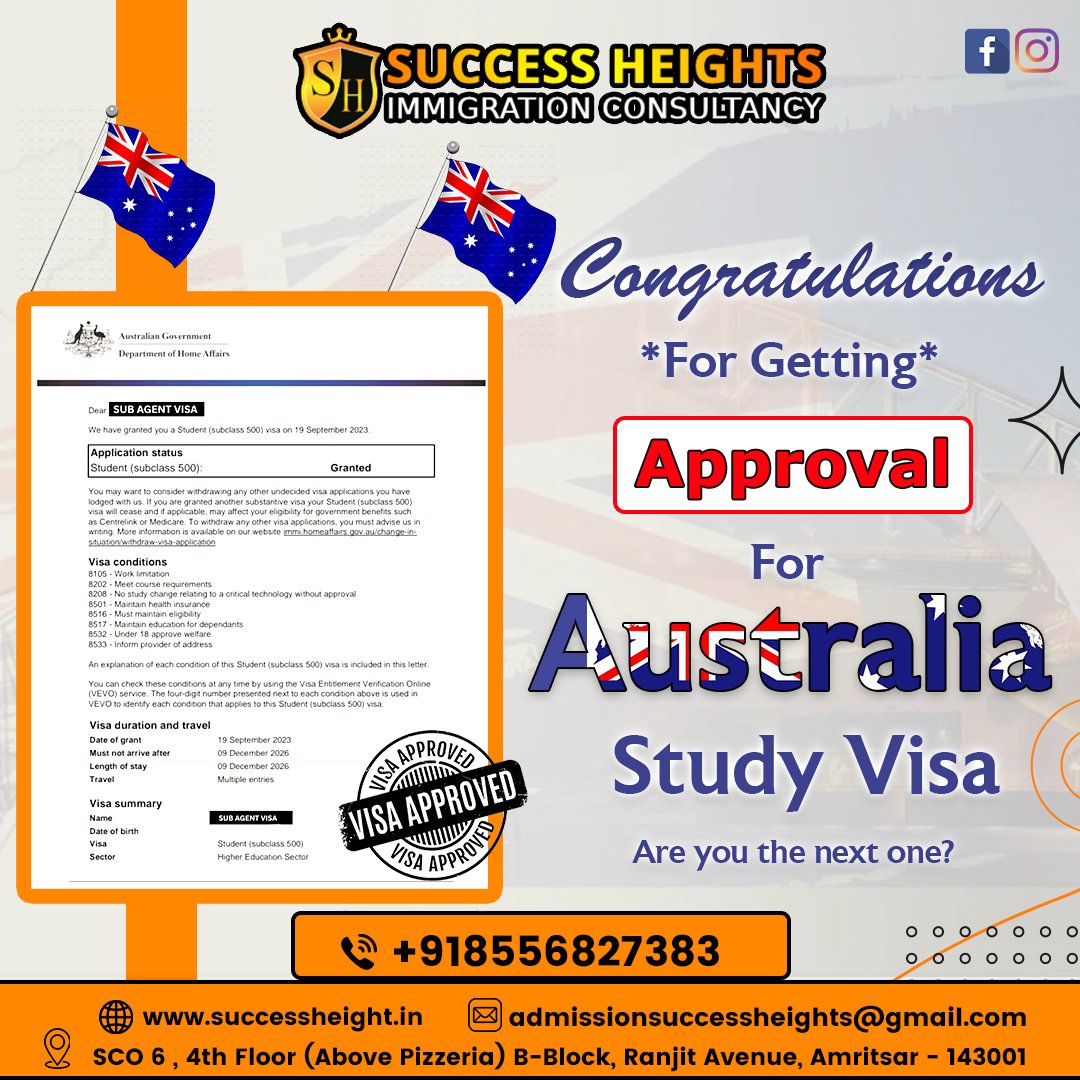You must consider factors, including educational standards, language requirements, cost of living, cultural diversity, safety, and employment prospects, while selecting a country to study abroad. Investigate colleges, speak with counsellors, and consider logical preferences. You can always call us, and we will handle the entire process.
Depending on the country, institution, and course you select, there can be differences in the prerequisites and qualifications needed to study abroad. However, basic requirements include a secondary education degree or equivalent, English language proficiency (often proved through standardised exams like the TOEFL, IELTS or PTE), academic records, letters of recommendation, a personal statement or essay, and a current passport. In some nations, a student visa, evidence of financial assistance, and proof of health insurance may also be necessary. Furthermore, a student must consult a reputable consultant for reliable information.
To meet all your expenses, take scholarships/grants, research student loans and distance from college, consider taking up part-time employment, save money, and ask your family for help. You can also raise funds from family, look for internships and work-study programmes, and research financial aid and exchange programmes to pay for your education and living expenses abroad. To effectively pay for expenses, prepare in advance, investigate your possibilities, and take into account a variety of financial sources.
Each country has its own set of rules regarding visas for students. In general, you'll require a current passport, a letter of acceptance, financial records, proof of health insurance, evidence of language ability in some countries, pictures, and fully filled-out application papers. For precise information, check the country's regulations in detail and speak with their embassy or consulate. Start early and stick closely to the rules. You can also fill out a form on our website with your basic details, and we will call you to expedite the process.
















